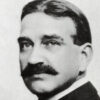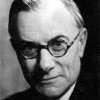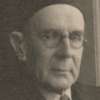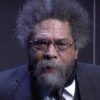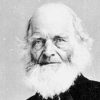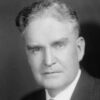Some of my youthful readers are developing wonderful imaginations. This pleases me. Imagination has brought mankind through the Dark Ages to its present state of civilization. Imagination led Columbus to discover America. Imagination led Franklin to discover electricity. Imagination has given us the steam engine, the telephone, the talking-machine, and the automobile, for these things had to be dreamed of before they became realities. So I believe that dreams — day dreams, you know, with your eyes wide open and your brain machinery whizzing — are likely to lead to the betterment of the world. The imaginative child will become the imaginative man or woman most apt to create, to invent, and therefore to foster civilization. A prominent educator tells me that fairy tales are of untold value in developing imagination in the young. I believe it.
L. Frank Baum (1856-1919) American author [Lyman Frank Baum]
The Lost Princess of Oz, Introduction (1917)
(Source)
Quotations about:
progress
Note not all quotations have been tagged, so Search may find additional quotes on this topic.
History is the only consolation left to the peoples, for it teaches them that their ancestors were as unhappy as themselves, or more unhappy.
[En effet, il ne reste guère, pour consoler les peuples, que de leur apprendre que leurs ancêtres ont été aussi malheureux, ou plus malheureux.]Nicolas Chamfort (1741-1794) French writer, epigrammist (b. Nicolas-Sébastien Roch)
Products of Perfected Civilization [Produits de la Civilisation Perfectionée], Part 1 “Maxims and Thoughts [Maximes et Pensées],” ch. 8, ¶ 474 (1795) [tr. Mathers (1926)]
(Source)
(Source (French)). Alternate translations:
In fact there is no longer any way of consoling the people except by teaching them that their forebears were as wretched as they are, or more so.
[tr. Merwin (1969)]
Indeed, if one is to console the peoples of the world there is little else one can do but teach them that their ancestors were just as wretched, or more so.
[tr. Pearson (1973)]
In effect, there is nearly no way to console peoples except to tell them that their ancestors were as unfortunate or more unfortunate than they are.
[tr. Siniscalchi (1994), ¶ 473]
AHASUERAS: I am content.
ESTHER: Content is not the pathway to great deeds.Ella Wheeler Wilcox (1850-1919) American author and poet.
“The Drama of Mizpah: Honeymoon Scene,” Poems of Progress (1909)
(Source)
Perhaps people with my point of view are in a minority today. But the fact of being in a minority does not, in itself, trouble me, nor do I see anything un-American about being in a minority position. Quite the contrary. The minority views of one day are frequently the majority views of another, and in the possibility of this being so rests all our potentiality for progress.
Jane Jacobs (1916-2006) American-Canadian journalist, author, urban theorist, activist
“No Virtue in Meek Conformity” (1952)
(Source)
Foreword to her response to a State Department Loyalty Security Board interrogatory (1952-03-25). Reprinted in Vital Little Plans (2016).
I’ve come up with a set of rules that describe our reactions to technologies:
1. Anything that is in the world when you’re born is normal and ordinary and is just a natural part of the way the world works.
2. Anything that’s invented between when you’re fifteen and thirty-five is new and exciting and revolutionary and you can probably get a career in it.
3. Anything invented after you’re thirty-five is against the natural order of things.
I should like to say that you have, through your knowledge, powers which humans have never had before. You can use these powers well or you can use them ill. You will use them well if you realize that humankind is all one family and that we can all be happy or we can all be miserable.
Bertrand Russell (1872-1970) English mathematician and philosopher
Interview by Woodrow Wyatt, BBC TV (1959)
Collected in Bertrand Russell's BBC Interviews (1959) [UK] and Bertrand Russell Speaks His Mind (1960) [US].
I was brought up to believe that there is no virtue in conforming meekly to the dominant opinion of the moment. I was encouraged to believe that simple conformity results in stagnation for a society, and that American progress has been largely owing to the opportunity for experimentation, the leeway given initiative, and to a gusto and a freedom for chewing over odd ideas. I was taught that the American’s right to be a free individual, not at the mercy of the state, was hard-won and that its price was eternal vigilance, and that I too would have to be vigilant. I was made to feel that it would be a disgrace to me, as an individual, if I should not value or should give up rights that were dearly bought.
Jane Jacobs (1916-2006) American-Canadian journalist, author, urban theorist, activist
“No Virtue in Meek Conformity” (1952)
(Source)
Foreword to her response to a State Department Loyalty Security Board interrogatory (1952-03-25). Reprinted in Vital Little Plans (2016).
He who is content with what has been done is an obstacle in the path of progress.
Helen Keller (1880-1968) American author and lecturer
“Our Duties to the Blind,” speech, Massachusetts Assoc. for Promoting the Interests of the Adult Blind, Boston (1904-01-05)
(Source)
Reprinted in Out of the Dark: Essays, Lectures, and Addresses on Physical and Social Vision (1907).
I am among those who think that science has great beauty. A scientist in his laboratory is not only a technician: he is also a child placed before natural phenomena which impress him like a fairy tale. We should not allow it to be believed that all scientific progress can be reduced to mechanisms, machines, gearings, even though such machinery also has its beauty.
Marie Curie (1867-1934) Polish-French physicist and chemist [b. Maria Salomea Skłodowska]
“The Future of Culture [L’Avenir de la Culture]” conference, Madrid (1933-05-03/07)
(Source)
One of Curie's last public addresses. As quoted in Eve Curie Labouisse, Madame Curie: A Biography, ch. 24 (1937) [tr. Sheean (1938)].
Alternate translation:
I believe that science has great beauty. A scientist int he laboratory is not a mere technician; he is also a child confronting natural phenomena that impress him as though they were fairy tales. We should not allow it to believed that all scientific progress can be reduced to mechanisms, machines, and gearings, even though such machine also has beauty.
[Source]
Change is certain. Progress is not.
E. H. Carr (1892-1982) British historian, journalist, international relations theorist [Edward Hallett "Ted" Carr]
(Attributed)
This is widely cited to his collection, From Napoleon to Stalin and Other Essays (1980), but I cannot find it there.
Perhaps no other animal is so torn between alternatives. Man might be described fairly adequately, if simply, as a two-legged paradox. He has never become accustomed to the tragic miracle of consciousness. Perhaps, as has been suggested, his species is not set, has not jelled, but is still in a state of becoming, bound by his physical memories to a past of struggle and survival, limited in his futures by the uneasiness of thought and consciousness.
Dissatisfaction with the world in which we live and determination to realize one that shall be better, are the prevailing characteristics of the modern spirit.
G. Lowes Dickinson (1862-1932) British political scientist and philosopher [Goldsworthy "Goldie" Lowes Dickinson]
The Greek View of Life, ch. 5 “Conclusion” (1911)
(Source)
Even within the university world, where the highest calling should be to spark the fires of intellectual exploration and to prepare young minds for engaged and productive participation in our democracy, the mandates of the market have attained prominence. The narrow quest for success crowds out the noble effort to be great — greatness understood as using one’s success to make the world a better place for all.
Cornel West (b. 1953) American philosopher, political activist, social critic
Democracy Matters, ch. 6 (2004)
(Source)
People with new ideas, or those who step out of the popular line of thought, have always been lambasted as crackpots and radicals. Sometimes they have been exactly that, but quite often they have accomplished great things, and certainly none of the advances made in civilization has been due to counterrevolutionaries and advocates of the status quo.
My dear brothers, when you hear the progress of enlightenment extolled, never forget that the devil’s cleverest trick is to persuade you that he does not exist!
[Mes chers frères, n’oubliez jamais, quand vous entendrez vanter le progrès des lumières, que la plus belle des ruses du diable est de vous persuader qu’il n’existe pas!]
Charles Baudelaire (1821-1867) French poet, essayist, art critic
Le Spleen de Paris (Petits Poèmes en Prose), No. 29 “The Generous Gambler [Le Joueur généreux]” (1869) [tr. Kaplan (1989)]
(Source)
A warning by a Parisian preacher, as reported by the Devil himself. Used in movie The Usual Suspects (1995) as "The greatest trick the Devil ever pulled was convincing the world he didn't exist."
(Source (French)). Alternate translations:
My dear brethren, never forget, when you hear the progress of wisdom vaunted, that the cleverest ruse of the Devil is to persuade you he does not exist!
[tr. Shipley (<1919) "The Generous Player"]
My dear brethren, never forget, when you hear boasts about the progress of enlightenment, that the finest ruse of the devil is to persuade you that he does not exist!
[tr. Hamburger (1946) "The Generous Gamester"]
My dear brothers, never forget when you hear people boast of our progress in enlightenment, that one of the devil's best ruses is to persuade you that he does not exist!
[tr. Varèse (1970)]
The Devil's subtlest ruse is to convince us that he doesn't exist.
[tr. McGowan (1993)]
Dear brethren, never forget that the finest of all the devil's tricks is to persuade you that he doesn't exist.
[tr. Lerner (2003)]
My dear brethren, do not ever forget, when you hear the progress of lights praised, that the loveliest trick of the Devil is to persuade you that he does not exist!
[Source]
Life is like a camel: you can make it do anything except back up.
Marcelene Cox (1900-1998) American writer, columnist, aphorist
“Ask Any Woman” column, Ladies’ Home Journal (1945-07)
(Source)
Art followed hard on art. Toil triumphed over every obstacle, unrelenting Toil, and Want that pinches when life is hard.
[Tum variae venere artes. Labor omnia vicit
inprobus et duris urgens in rebus egestas.]Virgil (70-19 BC) Roman poet [b. Publius Vergilius Maro; also Vergil]
Georgics [Georgica], Book 1, l. 145ff (1.145) (29 BC) [tr. Fairclough (Loeb) (1916)]
(Source)
On humanity developing the arts and sciences in response to Jove making life difficult.
Compare this to Labor omnia vincit ("Work conquers all"), Oklahoma's state motto.
(Source (Latin)). Alternate translations:
Then came strange arts, fierce labor all subdues.
Inforc'd by bold Necessity, and Want.
[tr. Ogilby (1649)]
And various Arts in order did succeed,
(What cannot endless Labour urg'd by need?)
[tr. Dryden (1709), ll. 217-218]
Thus by long labour arts to arts succeed,
Such is the force of all-compelling need.
[tr. Nevile (1767)]
Thus rous'd by varied wants new arts arose,
And strenuous Labour triumph'd at its close.
[tr. Sotheby (1800)]
Then various arts ensued. Incessant labour and want, in hardships pressing, surmounted every obstacle.
[tr. Davidson (1854)]
Then came the various arts: oh, grand success
Of reckless toil and resolute distress!
[tr. Blackmore (1871)]
Then came the various arts of life. So toil, relentless toil, and the pressure of want in adversity, conquered the world. [tr. Wilkins (1873)]
Then divers arts arose; toil conquered all,
Remorseless toil, and poverty's shrewd push
In times of hardship.
[tr. Rhoades (1881)]
Thus stern Necessity inventive tried
Fresh arts, which life’s increasing wants supplied.
[tr. King (1882)]
Then various arts followed. Unwearying labor overcame every difficulty, and want spurring men on in times of hardship.
[tr. Bryce (1897)]
Then arts many in sort; nothing but yielded to unrelenting toil and the hard pressure of poverty.
[tr. Mackail (1899)]
Then divers arts arose; toil conquered all,
Remorseless toil, and poverty's shrewd push
In times of hardship.
[tr. Greenough (1900)]
Then followed manifold arts: unflinching toil ever one
Triumphs: in hardship's school stern need still drave men on.
[tr. Way (1912)]
Then later times
Brought forth of other arts the varied skill.
Work conquered all, relentless, obstinate,
While poverty and hardship urged it on.
[tr. Williams (1915)]
Then numerous arts arose. Yes, unremitting labour
And harsh necessity's hand will master anything.
[tr. Day-Lewis (1940)]
Then followed all the civilizing arts:
Hard labor conquered all, and pinching need.
[tr. Bovie (1956)]
Then all kinds of skills came into being. Toil has overcome all things, runious toil and need, pressing in harsh circumstances.
[tr. Miles (1980)]
And last the various arts.
Toil mastered everything, relentless toil
And the pressure of pinching poverty.
[tr. Wilkinson (1982)]
Then came the various arts. Hard labour conquered all,
and poverty’s oppression in harsh times.
[tr. Kline (2001)] https://www.poetryintranslation.com/PITBR/Latin/VirgilGeorgicsI.php#anchor_Toc533589845:~:text=then%20came%20the,in%20harsh%20times.
Then came the arts in many guises. Relentless work conquered
all difficulties -- work and urgent need when times were hard.
[tr. Lembke (2004)]
All this before the knowledge and know-how which ensued. Hard work prevailed, hard work and pressing poverty.
[tr. Fallon (2006)]
And then myriad arts. Toil subdued the earth, relentless toil, and the prick of dearth in hardship.
[tr. Johnson (2009)]
Then followed other arts; and everything
Was toil, relentless toil, urged on by need.
[tr. Ferry (2015)]
I’d rather be a rising ape than a falling angel.
Terry Pratchett (1948-2015) English author
(Frequent Phrase)
Pratchett used this phrase and variations on it on numerous occasions. Here are a few:
Humans need fantasy to be human. To be the place where the falling angel meets the rising ape.
-- Hogfather (1996)
Who would not rather be a rising ape than a falling angel.
-- "I create gods all the time," Daily Mail (2008-06-21)
"I'd much rather be a rising ape than a fallen angel"
-- Guardian Book Club Q&A video, 7:19 Guardian (2009-12-19)
See also F. H. Knelman's essay, "Probing Man's True Nature" in 1984 And All That, Sec. 3 (1971):
In the last few years science has been racked by vexing questions concerning the nature of man. The fallen angel has departed and the rising ape appeared.
Adept Kung said: “I do nothing to others that I wouldn’t want done to me.”
“That’s something you haven’t quite mastered, Kung,” the Master replied.
[子貢曰、我不欲人之加諸我也、吾亦欲無加諸人。
子曰、賜也、非爾所及也。]Confucius (c. 551- c. 479 BC) Chinese philosopher, sage, politician [孔夫子 (Kǒng Fūzǐ, K'ung Fu-tzu, K'ung Fu Tse), 孔子 (Kǒngzǐ, Chungni), 孔丘 (Kǒng Qiū, K'ung Ch'iu)]
The Analects [論語, 论语, Lúnyǔ], Book 5, verse 12 (5.12) (6th C. BC – AD 3rd C.) [tr. Hinton (1998)]
(Source)
The earliest appearance of the "Golden Rule" in world literature. See also 12.2, 15.24, and Matthew 7:12.
Originally numbered 5.11 by Legge and other early sources, as noted.
(Source (Chinese)). Alternate translations:
Tsze-kung said, "What I do not wish men to do to me, I also wish not to do to men."
The Master said, "Ts'ze, you have not attained to that."
[tr. Legge (1861), 5.11]
Tsz-kung made the remark: ‘That which I do not wish others to put upon me, I also wish not to put upon others.’
‘Nay,’ said the Master, 'you have not got so far as that.’
[tr. Jennings (1895), 5.11]
A disciple said to Confucius, "What I do not wish that others should not do unto me, I also do not wish that I should do unto them."
"My friend," answered Confucius, "You have not yet attained to that."
[tr. Ku Hung-Ming (1898), 5.11]
Tzŭ Kung said, "What I do not wish others to do to me, that also I wish not to do to them."
"Tzŭ!" observed the Master, "that is a point to which you have not attained."
[tr. Soothill (1910), 5.11]
Tze-Kung said: What I don't want done to me, 1 don’t want to do to anyone else.
Confucius said: No, Ts'ze. you haven't got that far yet.
[tr. Pound (1933), 5.11]
Tzu-kung said, What I do not want others to do to me, I have no desire to do to others.
The Master said, Oh Ssu! You have not quite got to that point yet.
[tr. Waley (1938), 5.11]
Tuan-mu Tz'u said, "What I do not wish others to do unto me I also wish not to do unto others."
"You're not up to that!"
[tr. Ware (1950)]
Tzu-kung said, "While I do not wish others to impose on me, I also wish not to impose on others."
The Master said, "Ssu, that is quite beyond you."
[tr. Lau (1979)]
Zigong said: "If I do not want others to inflict something on me, I also want to avoid inflicting it on others."
The Master said: "Si, this is not a point you have yet reached."
[tr. Dawson (1993)]
Zigong said: "I would not want to do to others what I do not want them to do to me."
The Master said: "Oh, you have not come that far yet!"
[tr. Leys (1997)]
Zi-gong said: "What I do not wish others to impose on me, I also do not wish to impose on others."
The Master said: "Ci, this is beyond your reach."
[tr. Huang (1997)]
Zigong said: "I do not want others to force anything on me, and I do not want to force anything on others, too."
Confucius said: "Si, it could not be reached by you."
[tr. Cai/Yu (1998), #104]
Dž-gùng said, If I do not wish others to do something to me, I wish not to do it to them.
The Master said, Sz', this is not what you can come up to.
[tr. Brooks/Brooks (1998)]>
Zigong said, "I do not want others to impose on me, nor do I want to impose on them."
Confucius replied, "Zigong, this is quite beyond your reach."
[tr. Ames/Rosemont (1998)]
Zigong said, “What I do not wish others to do unto me, I also wish not to do unto others.”
The Master said, “Ah, Zigong! That is something quite beyond you.”
[tr. Slingerland (2003)]
Zigong said, What I don’t want others to do to me, I want to avoid doing to others.
The Master said, Si (Zigong), you haven’t gotten to that stage yet.
[tr. Watson (2007)]
Zigong said, "I do not wish others to impose what is unreasonable [jia] on me, and I do also not wish to impose what is unreasonable on others."
The Master said, "Si [Zigong], this is not something that is within your power."
[tr. Chin (2014)]
Zi Gong said, "I hope other people will not impose on me against my will. Likewise, I will not impose on other people against their will too."
Confucius said, "Ci, you may not be able to do so all the time."
[tr. Li (2020)]
Race hatred is one of the most cruel and least civilised emotions to which men in the mass are liable, and it is of the utmost importance for human progress that every possible method of diminishing it should be adopted.
Bertrand Russell (1872-1970) English mathematician and philosopher
“On Race Hatred,” New York American (1933-05-24)
(Source)
To build a better world we need to replace the patchwork of lucky breaks and arbitrary advantages that today determine success — the fortunate birth dates and the happy accidents of history — with a society that provides opportunities for all.
Malcolm Gladwell (b. 1963) Anglo-Canadian journalist, author, public speaker
Outliers: The Story of Success, Part 2, ch. 9 (2008)
(Source)
The great question for our time is, how to make sure that the continuing scientific revolution brings benefits to everybody rather than widening the gap between rich and poor. To lift up poor countries, and poor people in rich countries, from poverty, to give them a chance of a decent life, technology is not enough. Technology must be guided and driven by ethics if it is to do more than provide new toys for the rich.
Freeman Dyson (1923-2020) English-American theoretical physicist, mathematician, futurist
“Progress in Religion,” Templeton Prize acceptance speech, Washington National Cathedral (9 May 2000)
(Source)
Somewhere we must come to see that human progress never rolls in on the wheels of inevitability. It comes through the tireless efforts and the persistent work of dedicated individuals who are willing to be coworkers with God. And without this hard work, time itself becomes an ally of the primitive forces of social stagnation. So we must have time and realize that the time is always right to do right.
Martin Luther King, Jr. (1929-1968) American clergyman, civil rights leader, social activist, preacher
“Remaining Awake Through a Great Revolution,” National Cathedral, Washington, DC (31 Mar 1968)
(Source)
All of our exalted technological progress, civilization for that matter, is comparable to an axe in the hand of a pathological criminal.
Albert Einstein (1879-1955) German-American physicist
Letter to Heinrich Zangger (6 Dec 1917), in Collected Papers, Vol. 8, # 403 (1987) [tr. Hentschel]
(Source)
The invention of gunpowder and the constant improvement of firearms are enough in themselves to show that the advance of civilization has done nothing practical to alter or deflect the impulse to destroy the enemy, which is central to the very idea of war.
[Die Erfindung des Pulvers, die immer weiter gehende Ausbildung des Feuergewehrs zeigen schon hinreichend, dase die in dem Begriff des Krieges liegende Tendenz zur Vernichtung des Gegners auch faktisch durch die zunehmende Bildung keineswegs gestört oder abgelenkt worden ist.]
Karl von Clausewitz (1780-1831) Prussian soldier, historian, military theorist
On War [Vom Kriege], Book 1, ch. 1 “What Is War? [Was ist der Krieg?],” § 3 (1.1.3) (1832) [tr. Howard & Paret (1976)]
(Source)
(Source (German)). Alternate translations:
The invention of gunpowder, the constant progress of improvements in the construction of firearms are sufficient proofs that the tendency to destroy the adversary which lies at the bottom of the conception of war, is in no way changed or modified through the progress of civilisation.
[tr. Graham (1873)]
The invention of gunpowder and the advances continually being made in the development of firearms, in themselves show clearly enough that the demand for the destruction of the enemy, inherent in the theoretical conception of war, has been in no way actually weakened or diverted by the advance of civilization
[tr. Jolles (1943)]
The technologies which have had the most profound effects on human life are usually simple. A good example of a simple technology with profound historical consequences is hay. Nobody knows who invented hay, the idea of cutting grass in the autumn and storing it in large enough quantities to keep horses and cows alive through the winter. All we know is that the technology of hay was unknown to the Roman Empire but was known to every village of medieval Europe. Like many other crucially important technologies, hay emerged anonymously during the so-called Dark Ages. According to the Hay Theory of History, the invention of hay was the decisive event which moved the center of gravity of urban civilization from the Mediterranean basin to Northern and Western Europe. The Roman Empire did not need hay because in a Mediterranean climate the grass grows well enough in winter for animals to graze. North of the Alps, great cities dependent on horses and oxen for motive power could not exist without hay. So it was hay that allowed populations to grow and civilizations to flourish among the forests of Northern Europe. Hay moved the greatness of Rome to Paris and London, and later to Berlin and Moscow and New York.
You can’t always come up with the optimal solution, but you can usually come up with a better solution. A good compromise, a good piece of legislation, is like a good sentence. Or a good piece of music. Everybody can recognize it. They say, “Huh. It works. It makes sense.” That doesn’t happen often, of course, but it happens.
Barack Obama (b. 1961) American politician, US President (2009-2017)
Quoted in William Finnegan, “The Candidate,” The New Yorker (31 May 2004)
(Source)
While a state senator in Illinois.
Whenever you take a step forward you are bound to disturb something. You disturb the air as you go forward, you disturb the dust, the ground. You trample upon things. When a whole society moves forward this trampling is on a much bigger scale and each thing that you disturb, each vested interest which you want to remove, stands as an obstacle.
Indira Gandhi (1917-1984) Indian politician
“Poverty: India’s Vital Problem,” speech, Madras University (Jan 1967)
(Source)
Impatience and cutting corners: it’s the primate way. It got us down out of the trees and up to the top of the evolutionary heap as a species, which is a lot more like a slippery, mud-slick game of King of the Hill with stabbing encouraged than any kind of tidy Victorian great chain of being or ladder of creation.
Elizabeth Bear (b. 1971) American author [pseud. for Sarah Bear Elizabeth Wishnevsky]
Ancestral Night (2019)
(Source)
Come, come, my conservative friend, wipe the dew off your spectacles, and see that the world is moving.
Elizabeth Cady Stanton (1815-1902) American social activist, abolitionist, woman's suffragist
The Woman’s Bible, Part 1, Introduction (1895)
(Source)
A Conservative is a man with two perfectly good legs who, however, has never learned to walk forward.
Franklin Delano Roosevelt (1882-1945) American lawyer, politician, statesman, US President (1933-1945)
Radio Address, New York Herald Tribune Forum (26 Oct 1939)
(Source)
The greatest of sages can commit one mistake, but not two; he may fall into error, but he doesn’t lie down and make his home there.
[En un descuido puede caer el mayor sabio, pero en dos no; y de paso, que no de asiento.]
Baltasar Gracián y Morales (1601-1658) Spanish Jesuit priest, writer, philosopher
The Art of Worldly Wisdom [Oráculo Manual y Arte de Prudencia], § 214 (1647) [tr. Maurer (1992)]
(Source)
(Source (Spanish)). Alternate translations:
The wisest man may very well fail once, but not twice; transiently, and by inadvertency, but not deliberately.
[Flesher ed. (1685)]
A wise man may make one slip but never two, and that only in running, not while standing still.
[tr. Jacobs (1892)]
The wisest of men may slip once, but not twice, and that only by chance, and not by design.
[tr. Fischer (1937)]
If we had a reliable way to label our toys good and bad, it would be easy to regulate technology wisely. But we can rarely see far enough ahead to know which road leads to damnation. Whoever concerns himself with big technology, either to push it forward or to stop it, is gambling in human lives.
Freeman Dyson (1923-2020) English-American theoretical physicist, mathematician, futurist
Disturbing the Universe, ch. 1 (1979)
(Source)
Conservatives are always with us, they have been opposing change ever since the days of the cave-man. But, fortunately for mankind, they agitate in vain.
Weep not that the world changes — did it keep
A stable, changeless state, ’twere cause indeed to weep.William Cullen Bryant (1794-1878) American poet and editor
“Sonnet — Mutation,” ll. 13-14 (1824)
(Source)
When you are through changing, you are through.
Bruce Barton (1886-1967) American author, advertising executive, politician
Article Title, The American Magazine (1929?)
(Source)
Barton was a regular contributor to The American Magazine. Both the cited source (from 1929) and this suggest this was an article he contributed no later than 1929.
The saying has been misattributed to a number of more recent consultants, motivational speakers, etc.
Living things tend to change unrecognizably as they grow. Who would deduce the dragonfly from the larva, the iris from the bud, the lawyer from the infant? Flora or fauna, we are all shape-shifters and magic reinventors. Life is really a plural noun, a caravan of selves.
Diane Ackerman (b. 1948) American poet, author, naturalist
Cultivating Delight; A Natural History of My Garden, ch. 6 (2001)
(Source)
What threatens our security is not change but the inability to change; what threatens progress is not revolution but stagnation; what threatens our survival is not novel or dangerous ideas but the absence of ideas.
Henry Steele Commager (1902-1998) American historian, writer, activist
“The University and the Community of Learning,” speech, Kent State University, Ohio (10 Apr 1971)
(Source)
Governments never lead; they follow progress. When the prison, stake or scaffold can no longer silence the voice of the protesting minority, progress moves on a step, but not until then.
Lucy Parsons (1851-1942) American labor organizer, anarchist, orator [a.k.a. Lucy Gonzalez]
“The Principles of Anarchism,” lecture (1905)
(Source)
Technological advance is rapid. But without progress in charity, technological advance is useless. Indeed, it is worse than useless. Technological progress has merely provided us with more efficient means for going backwards.
Aldous Huxley (1894-1963) English novelist, essayist and critic
Ends and Means: An Inquiry Into the Nature of Ideals, ch. 1 (1937)
(Source)
Democracy will win — because a government’s legitimacy can only come from citizens; because in this age of information and empowerment, people want more control over their lives, not less; and because, more than any other form of government ever devised, only democracy, rooted in the sanctity of the individual, can deliver real progress.
Barack Obama (b. 1961) American politician, US President (2009-2017)
Speech, Nordea Concert Hall, Tallinn, Estonia (3 Sep 2014)
(Source)
To me, good works are more important than theology. We all know that religion has been historically, and still is today, a cause of great evil as well as great good in human affairs. We have seen terrible wars and terrible persecutions conducted in the name of religion. We have also seen large numbers of people inspired by religion to lives of heroic virtue, bringing education and medical care to the poor, helping to abolish slavery and spread peace among nations. Religion amplifies the good and evil tendencies of individual souls. Religion will always remain a powerful force in the history of our species. To me, the meaning of progress in religion is simply this, that as we move from the past to the future the good works inspired by religion should more and more prevail over the evil.
Freeman Dyson (1923-2020) English-American theoretical physicist, mathematician, futurist
“Progress in Religion,” speech accepting the Templeton Prize, Washington National Cathedral (9 May 2000)
(Source)
To arrive at a just estimate of a renowned man’s character one must judge it by the standards of his time, not ours. Judged by the standards of one century, the noblest characters of an earlier one lose much of their luster; judged by the standards of today, there is probably no illustrious man of four or five centuries ago whose character could meet the test at all points.
Mark Twain (1835-1910) American writer [pseud. of Samuel Clemens]
Joan of Arc, “Translator’s Preface” (1860)
(Source)
Progress means getting nearer to the place where you want to be. And if you have taken a wrong turning, then to go forward does not get you any nearer. If you are on the wrong road, progress means doing an about-turn and walking back to the right road; and in that case, the man who turns back soonest is the most progressive.
C. S. Lewis (1898-1963) English writer, literary scholar, lay theologian [Clive Staples Lewis]
Mere Christianity, Book 1, ch. 5 “We Have Cause to be Uneasy” (1952)
(Source)
Originally broadcast on BBC Radio (27 Aug 1941) under the title "What Can We Do About It?" Reprinted first in Broadcast Talks (1943) (US title The Case for Christianity (1944)).
Change does not necessarily assure progress, but progress implacably requires change.
Henry Steele Commager (1902-1998) American historian, writer, activist
“We Have Changed — and Must,” The New York Times Magazine (30 Apr 1961)
(Source)
Loyalty … is a realization that America was born of revolt, flourished in dissent, became great through experimentation.
Little by little, one travels far.
[Poco a poco se anda lejos.]
(Other Authors and Sources)
Spanish Proverb
Literally, "Little by little, one goes a long way." Sometimes misattributed to J. R. R. Tolkien.
Truths are first clouds, then rain, then harvests and food. The philosophy of one century is the common sense of the next. Men are called fools, in one age, for not knowing what they were called fools for averring in the age before.
If the road to social transformation can be paved only by saints who never make mistakes, the road will never be built.
Anthony Kapel "Van" Jones (b. 1968) American news commentator, author, lawyer
In Thomas L. Friedman, “The Green-Collar Solution,” New York Times (17 Oct 2007)
(Source)
After our ages-long journey from savagery to civility, let’s hope we haven’t bought a round-trip ticket.
Cullen Hightower (1923-2008) American writer, aphorist, salesman.
(Attributed)
Attributed in Forbes magazine (29 Mar 1993).
The key to any progress is to ask the question Why? All the time. Why is that child poor? Why was there a war? Why was he killed? Why is he in power? And of course questions can get you into a lot of trouble, because society is trained by those who run it to accept what goes on. Without questions we won’t make any progress at all.
Few match their fathers. Any tongue can tell
The more are worse: yea, almost none their sires excel.[παῦροι γάρ τοι παῖδες ὁμοῖοι πατρὶ πέλονται,
οἱ πλέονες κακίους, παῦροι δέ τε πατρὸς ἀρείους.]Homer (fl. 7th-8th C. BC) Greek author
The Odyssey [Ὀδύσσεια], Book 2, l. 276ff (2.276) [Athena to Telemachus] (c. 700 BC) [tr. Worsley (1861), st. 37]
(Source)
(Source (Greek)). Alternate translations:
For few, that rightly bred on both sides stand,
Are like their parents, many that are worse,
And most few better. Those then that the nurse
Or mother call true-born yet are not so,
Like worthy sires much less are like to grow.
[tr. Chapman (1616)]
Few sons exceed or reach their father’s might,
But commonly inferior they are.
[tr. Hobbes (1675), l. 257ff]
Few sons attain the praise
Of their great sires, and most their sires disgrace.
[tr. Pope (1725)]
Few sons their fathers equal; most appear
Degenerate; but we find, though rare, sometimes
A son superior even to his Sire.
[tr. Cowper (1792)]
Few be the children equal to their father:
The most be worse: and few be better men.
[tr. Bigge-Wither (1869)]
For few children, truly, are like their father; lo, the more part are worse, yet a few are better than the sire.
[tr. Butcher/Lang (1879)]
Though not oft is the son meseemeth e'en such an one as his sire.
Worser they be for the more part, and a few may be better forsooth.
[tr. Morris (1887)]
Few sons are like their fathers; most are worse, few better than the father.
[tr. Palmer (1891)]
Sons are seldom as good men as their fathers; they are generally worse, not better.
[tr. Butler (1898)]
Few sons indeed are like their fathers; most are worse, few better than their fathers.
[tr. Murray (1919)]
Few are the sons who attain their fathers' stature: and very few surpass them. Most fall short in merit.
[tr. Lawrence (1932)]
Few sons, indeed, are like their fathers. Generally they are worse; but just a few are better.
[tr. Rieu (1946)]
The son is rare who measures with his father,
and one in a thousand is a better man.
[tr. Fitzgerald (1961)]
For few are the children who turn out to be equals of their fathers,
and the greater number are worse; few are better than their father is.
[tr. Lattimore (1965)]
Few sons are the equals of their fathers;
most fall short, all too few surpass them.
[tr. Fagles (1996)]
You know, few sons turn out to be like their fathers;
Most turn out worse, a few better.
[tr. Lombardo (2000), ll. 300-301]
It is a truth that few sons are the equal of their fathers; most are inferior to their father, and few surpass them.
[tr. Verity (2016), l. 276]
And it is rare for sons to be like fathers;
only a few are better, most are worse.
[tr. Wilson (2017)]
It’s true few men
are like their fathers. Most of them are worse.
Only very few of them are better.
[tr. Johnston (2019), l. 373ff]
Everyone loves the Revolution. We only disagree on whether it has occurred.
James Richardson (b. 1950) American poet
“Vectors: 56 Aphorisms and Ten-second Essays,” Michigan Quarterly Review, # 8 (Spring 1999)
(Source)

